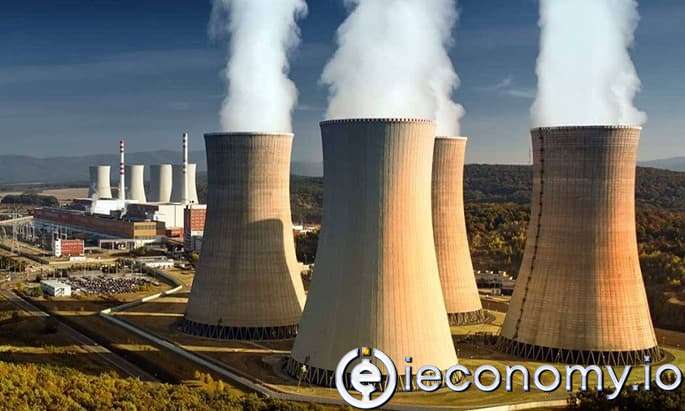7451
0
Energy Costs Accelerate Nuclear Investments
The energy crisis affecting the whole world has accelerated the return to nuclear energy. Total installed capacity worldwide is projected

Yazar: James Gordon
Yayınlanma: 29 Ağustos 2022 03:59
Güncellenme: 3 Mart 2026 13:02
Energy Costs Accelerate Nuclear Investments
The energy crisis affecting the whole world has accelerated the return to nuclear energy. Total installed capacity worldwide is projected to double within 30 years.
Against a backdrop of rapidly rising energy costs following Russia's invasion of Ukraine, nuclear investment, which has been on the decline since the Fukushima accident in 2011, is on the rise again. With the need to reduce dependence on Russian natural gas on the one hand, and the risk of coal combustion to emission reduction targets on the other, the balance is shifting in favor of nuclear. One of the leading countries in new power plant investments is Japan, the country where Fukushima happened. Last week, Japanese Prime Minister Fumio Kishida stated that they will build new power plants for the first time since the accident. Other countries, which have pledged to reduce their nuclear capacity in recent years, are also emphasizing these plans. In the first month of the occupation, Belgium said it was postponing its plan to abandon nuclear energy by 10 years in 2025. Even Germany, which leads the anti-nuclear front, has opened the issue to debate. The locomotive country of the European Union economy is questioning its plans to shut down the last 3 plants by the end of this year at a time when the anti-nuclear Greens are coalition partners. Follow Global Economic Developments on Social Media! Click here to follow Ieconomy official Facebook account! Click here to follow Ieconomy official Instagram account! Click here to follow Ieconomy official Twitter account!İLGİLİ HABERLER





European stocks soared and focus shifted to German retail sales after Powell's speech!

Forex Signal For TRY/USD: Inflation Slowdown in November.

Forex Signal For GBP/USD: Bullish Trend Still Not Breaking While Recovery Continues.

Forex Signal For EUR/USD: Starry US Data Points to Higher Fed Increases.

Forex Signal For BTC/USD: Downside Continues as Bitcoin Recovery Moves Less.
En Popüler Haberler
Yorum Yap
Yorumlar
Henüz yorum yapan yok! İlk yorumu siz yapın...